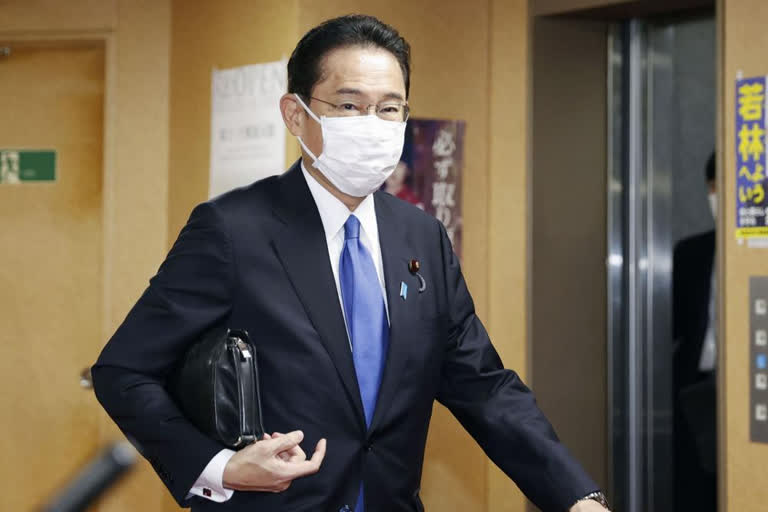Tokyo: Japan's parliament on Monday elected Fumio Kishida as the new prime minister, who will tasked with quickly tackling the pandemic and security challenges before an imminent national election. Kishida replaces Yoshihide Suga, who resigned with his Cabinet earlier in the day. Kishida and his Cabinet will be sworn in at a palace ceremony later Monday. Suga left after only one year in office after seeing his support plunge over his government's handling of the pandemic and insistence on holding the Olympics as the virus spread.
A former foreign minister, Kishida, 64, used to be known as a dovish moderate but turned hawkish apparently to win over influential conservatives in the party. He is firmly entrenched in the conservative establishment and his victory in the party election was a choice for continuity and stability over change. All but two of 20 Cabinet posts under Suga will be replaced, 13 them appointed to ministerial posts for the first time, Japanese media reported. Most of the posts went to powerful factions that voted for Kishida in the party election. Only three women are reportedly included, up from two in Suga's government.
Foreign Minister Toshimitsu Motegi and Defense Minister Nobuo Kishi are to be retained, ensuring continuity of Japan's diplomacy and security policies as the country seeks to closely work with Washington under the bilateral security pact in the face of China's rise and growing tensions in the region, including around Taiwan. Kishida supports stronger Japan-U.S. security ties and partnerships with other like-minded democracies in Asia, Europe and Britain, in part to counter China and nuclear-armed North Korea.
Kishida is to create a new Cabinet post aimed at tackling economic dimensions of Japan's national security, appointing 46-year-old Takayuki Kobayashi, who is relatively new to parliament. Japan faces growing nuclear and missile threats from North Korea, which last month test-fired ballistic missiles capable of hitting targets in Japan. Kishida also faces worsening ties with fellow U.S. ally South Korea over history issues even after he struck a 2015 agreement with Seoul to resolve a row over the issue of women who were sexually abused by Japan's military during World War II.
